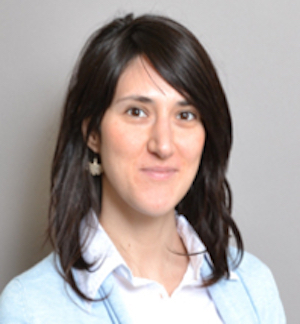Elsa Passaro
Interview by Nicola Nosengo, NCCR MARVEL, October 2024
What was your role in NCCR MARVEL, and what did you focus on at the time?
I was in Nicola Marzari’s group at EPFL, and I oversaw development, deployment and maintenance of the Materials Cloud platform. I took care of developing both the back end, with AiiDA, and the front end. As for deployment, I was developing automated scripts to update the servers and the web portal every time there was a change. But it wasn’t a purely coding role. I also had to talk to the research groups to decide with them how to design and organize their contributions to various sections of the site.
What was your path after leaving MARVEL?
In the final months of my postdoc contract, I started looking for new positions. I wanted to work in a software company, and I was specifically looking at opportunities at Red Hat because I knew they are committed to on open-source software. I knew their products because I was using them for the Materials Cloud, and they are used at the CSCS (the Swiss National Supercomputing Centre) where we had our servers. I also was specifically aiming for a fully remote position because my husband, working in academia, still didn’t have an indefinite contract at the time, and I knew I was going to need the flexibility to move. Luckily there were some open positions. I applied and interviewed for two different roles until I got the one I have now. Surely knowing their products well was very helpful in dealing with recruiters.

Elsa Passaro
How can you describe your current job?
I am a senior software quality engineer, working fully remotely from Malaga, Spain. With my team, that includes about ten people, we are responsible of guaranteeing the quality of software products. We make sure that each product has the requirements that the users expect. We work in close coordination with project managers and product managers, and we design test plans for the releases of our products. We execute test cases and we automate them, identifying bugs before the software is released. My role involves a significant amount of coding as part of the testing and automation process.
How did the MARVEL experience prepare you for this position?
Academia gave me the ability to learn new things quickly. Since the first internship, my managers have always told me that I was so fast at learning new tasks, and that because of that I could work in any department. MARVEL surely was crucial for my coding skills, and I’m still using many things I learned when I was working on the deployment and automation of scripts. I learned to work with remote servers in the cloud, and AiiDA made me familiar with the software development life cycle and how to prepare and plan software releases. Of course there are differences. Everything moves faster in the industry, and you need more attention to managing resources. I admit I have found some prejudices towards people coming from academia, especially those who come to the industry after their postdoc. The later you make the change, the harder it is - but it can still be done.
What advice would you have for young researchers who are considering a career in industry?
Pay attention to networking. Introduce yourself to as many people as you can. Keep in mind that there are many different career paths available in the industry, so don’t be afraid to choose one thing over another and miss opportunities, because it will be possible to change later. And if you are interested in a career in computation or software, the earlier you learn coding the better. Luckily most people in MARVEL learn how to code, and that is a skill that is in high demand in the industry right now.
